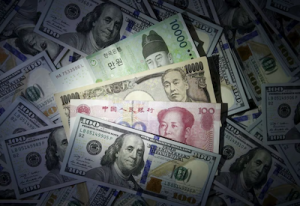(ATF) Chinese enterprise bonds fell the most in almost two years as credit-risk concerns gathered around state-linked firms.
The bonds of state-run miner Datong Coal fell the most among the 50 securities tracked by the benchmark ATF index as an energy crisis kept the lights off in many Chinese cities and factories. And the securities of Dalian Port plummeted as the ban on Australian coal imports left its berths empty.
The ATF China Bond 50 Index slid 0.13%, the most since June, dragged down by the Enterprise sub-index, which plummeted 0.22%, the steepest drop since March 2019.
State-owned-enterprises (SOEs) are still feeling the impact of investor doubts over their creditworthiness following a spate of defaults last month.
Also Read on ATF
- New virus strain sickens markets
- Chinese factories scrambling for workers amid export comeback
- China zones in on Baotou in push for rare earths dominance
The resultant selloff was stanched early this month when officials stepped in to say they’d take measures to improve the companies’ balance sheets. But further defaults last week and a suspicious piece of corporate chicanery by garment maker Shandong Ruyi Technology Group to avoid a technical default of bilking on a bond payment, has reignited investor worries.
Declines were starkest on the bonds of Datong Coal and Dalian Port. The yield on Datong Coal’s 7.2% bonds surged 20.5% as pressure mounts on the nations’ energy firms to deal with power outages across the country.
Coal producers have been clobbered because they have not been able to produce enough fuel to ease energy shortfalls that have led to more than a dozen cities imposing limits on electricity use.
The outages have been blamed by some analysts on China’s ban of Australian coal, which usually provides 3% of China’s coal but more than 6% of its thermal energy needs. Domestic suppliers have only been able to provide a quarter of the shortfall, according to reports.
The crisis has also hit the bonds of Dalian Port, which is one of China’s biggest gateways for overseas coal imports. The yield on its 4.95% bond climbed 9.9%.
Although China’s most northerly ice-free port had voluntarily begun lowering imports of Australian coal amid a trade row last year, the new ban means dozens of its births lie empty.
























